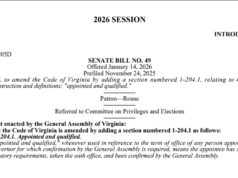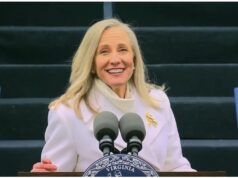
So the end result of the long campaign against government is that we’ve taken a disastrously wrong turn. America is now on the unlit, unpaved road to nowhere.
That is the conclusion of America Goes Dark, Paul Krugman’s column this morning. I am aware that it is covered as part of bobswern’s diary. My focus will be somewhat different, hence I do not consider this diary duplicative.
For Krugman, the imagery of going dark is both literal and figurative. Literally, cities like Colorado Spring are turning out their streetlights in a desperate attempt to save money. Figuratively, we are watching as budgets for schools are being slashed, programs eliminated, teachers discharged (and the passage of the measure that is bringing the House back into session will only partially ameliorate the damage to schools).
I am a teacher, and for me the imagery is not figurative, either in what will happen inside school or what happens to our commons, our infrastructure. So I wish to react.
Two snips of the impact:
…in a number of states, local governments are breaking up roads they can no longer afford to maintain, and returning them to gravel.
Teachers are being laid off; programs are being canceled; in Hawaii, the school year itself is being drastically shortened. And all signs point to even more cuts ahead.
Even before the immediate crises we now face, we saw a philosophy that has led to privatization of the commons. In Indiana the Governor led a movement to sell the Indiana Toll Road. In education we have seen even before this administration a concerted effort to take an educational that has been public and starve it, privatizing as much as is possible.
Roads – go back to the end of the Reagan administration. A man named Ralph Stanley, who under Ronnie had been head of the Urban Mass Transit Authority, led an organization that got the authority to build a private toll road, extending from the end of the publicly built and funded Dulles Toll Road to Leesburg VA. Only it ultimately failed and the Commonwealth of Virginia had to step in and pick up the costs – which were higher than had the state built the road – with Federal funding – itself.
Krugman notes we are being told these basic government functions are unaffordable, and at state and local levels governments have little cash.
But they wouldn’t be quite as cash-strapped if their politicians were willing to consider at least some tax increases.
And there is the Federal government. The next part of Krugman’s column contains an incredibly important point, one that I had not previously heard. It is obvious, and yet has not been part of the debate over what to do with the Bush tax cuts, due to expire:
And the federal government, which can sell inflation-protected long-term bonds at an interest rate of only 1.04 percent, isn’t cash-strapped at all. It could and should be offering aid to local governments, to protect the future of our infrastructure and our children.
Stop and think – have you checked how much little interest you get on YOUR savings? Think of getting a tax-exempt return of 1.04%, how much higher a return that would be.
Why, I wonder, is not the administration pointing out that borrowing massive amounts to sustain local and state government functions will (a) cost relatively little, and (b) give a return on investment that can enable the economy not merely to survive but to start to thrive is beyond me.
In the short run, those state and local cutbacks are a major drag on the economy, perpetuating devastatingly high unemployment.
The employees laid off – in schools, public safety, sanitation and administration – will lead to even a further loss of local revenue as the people who lose their jobs also begin to lose their homes. That will cause further downward pressure on real estate prices which will decrease the property taxes that are the primary source of revenue for most local governments. People without jobs are not spending – on food, clothing, gasoline, movies, household goods. That affects state and local governments in loss of revenue from sales taxes. The loss of the spending will lead to further losses of jobs, with additional downward pressure on real estate prices, with still further losses of sales tax revenues.
If we allow the top 2% to keep their Bush era tax cuts we will see an acceleration of the the widening disparities in income and in wealth.
And with federal spending now trailing off, while big state and local cutbacks continue, we’re going into reverse.
We are seeing the economy slow its growth, and it is not that far from dipping yet again. In employment, if we do not save several hundred thousand public sector jobs, we will in the not distant future lose several times that in private sector jobs. The Obama administration had sense enough to step in and save the auto industry, thereby saving a million additional jobs in the supply chain and elsewhere.
But who will buy cars if the roads on which we drive deteriorate? How flexible can employment be if we cannot get to jobs because the roads cannot bear the traffic, and if we make no investments in mass transportation? How badly will businesses suffer when they cannot get suppies and raw materials and they are unable to deliver their finished products – think even of how gasoline gets to your local station, or food gets to your local market.
How many more bridges might collapse? What about dams that are not maintained?
Educational reform? Don’t make me laugh. How about educational regression, when class sizes explode to 40 in a room, or schools are open only 4 days a week (look at Hawaii) – what does this do to child care issues for single parents or families where both adults have to work to pay their bills? What does this do to continuity of instruction?
Many have made up for lack of personal resources through using public facilities, especially libraries. How many public libraries will cut staff, limit hours, or simply such down branches or – as Camden NJ may now be about to do – completely shut down.
How did we get to this point? It’s the logical consequence of three decades of antigovernment rhetoric, rhetoric that has convinced many voters that a dollar collected in taxes is always a dollar wasted, that the public sector can’t do anything right.
This country was built and sustained by what the public sector did. We became the most educated nation in the world because of public schools and public colleges and universities. We expanded the middle class because of opportunities like the first GI Bill, which expanded education, home ownership and the ability to own one’s own business. In less than a generation we transformed our nation by the Interstate Highway System, making mobility a major part of our society and simultaneously stimulating our auto industry to help build a middle class society – steel, tires, so man suppliers as well as the assembly of the vehicles.
Waste and fraud, welfare queens driving cadillacs, – so much rhetoric designed to poison the American people against their own interests, against the benefits of a government that should be the servant of We the people.
Krugman calls that concerted attack a campaign, built on myths. Here I disagree because a myth can, technically, contain a truth. This was a campaign built on lies, with a clear intent by some to accumulate power and wealth, and to destroy any institution or organization that could conceivable offer opposition. This is why unions of all kind have been demonized, it is why teachers unions, with 4 million members, are under concerted attack now.
And what we are now losing?
services that everyone except the very rich need, services that government must provide or nobody will, like lighted streets, drivable roads and decent schooling for the public as a whole.
Let me be clear. Any Democratic member of the House who votes against the bill that is the occasion of the body returning to vote is beyond the pale. On this I do not care if the Speaker is willing to give Blue Dogs a pass for electoral purposes. Sorry, but on this the Caucus should be speaking with one voice. We have to change the understanding of the American people or even if we win this battle, we will have lost the war.
Politically, we should be making this election a stark choice between a party unwilling to commit to the public good – on health care, on taxes, on maintaining public institutions, on people paying their fair share – and a party that brought this nation Social Security, Medicare, the social safety net of unemployment insurance and benefits to sustain those in need, which provided a GI Bill to honor those who served – after WWII and for those serving now (and remember, Bush and McCain opposed what Jim Webb wanted).
We run a real risk. Our future is in grave danger. That’s what happens when you drive on the unlit, unpaved road to nowhere.









![[UPDATED 1/29/26] Audio: Sen. Tim Kaine Talks to Blue Virginia About His “Five-Point Plan” to Fight Trump’s Orban-Like Assault on US Democracy; Civil Disobedience a la MLK Jr.; Trump’s Bogus “Energy Emergency”; the Crucial Importance of the 2025 VA Elections; etc.](https://bluevirginia.us/wp-content/uploads/2025/02/kaineinterview2-100x75.jpg)

